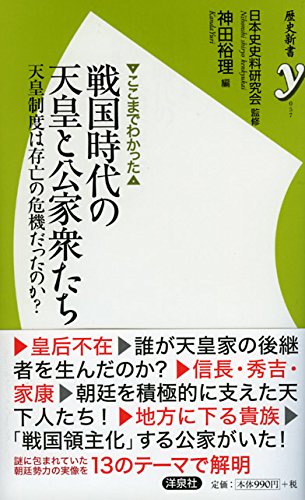2 0 0 0 OA 現代語の感動喚体句の構造と形式
- 著者
- 笹井 香
- 出版者
- 関西学院大学
- 雑誌
- 日本文藝研究 (ISSN:02869136)
- 巻号頁・発行日
- vol.57, no.2, pp.A1-A21, 2005-09-10
2 0 0 0 OA 自己知識の構造が気分不一致効果に及ぼす影響
- 著者
- 榊 美知子
- 出版者
- 公益社団法人 日本心理学会
- 雑誌
- 心理学研究 (ISSN:00215236)
- 巻号頁・発行日
- vol.77, no.3, pp.217-226, 2006-08-25 (Released:2010-07-16)
- 参考文献数
- 24
- 被引用文献数
- 2 5
Some people recall more positive memories in negative moods than in neutral moods, which is called mood-incongruent effect. Although previous research suggested that structure of self-knowledge influences mood-incongruent effect (Sakaki, 2004), it is possible that motivation for mood-regulation mediates relation between structure of self-knowledge and mood-incongruent effect. The present study aimed at exploring this possibility by using self-complexity. In Study 1, participants with higher self-complexity, whose self-knowledge has more self-aspects with a higher level of differentiation, recalled more positive memories in negative moods (compared to neutral moods) than participants with lower self-complexity, whose self-knowledge has a fewer self-aspects with larger overlap. Study 1 also revealed that these effects hold even when the motivation for mood-regulation was partialed out. Study 2 examined mood-incongruent effect under positive moods, in which participants are unlikely motivated to alter their moods, and it was found that participants with higher self-complexity recalled more negative memories in positive moods (compared to neutral moods) than participants with lower self-complexity.
2 0 0 0 IR ビュリダンにおける認識理論と心の哲学 : アクィナス、オッカムとの比較において
- 著者
- 丹間 康仁
- 出版者
- 筑波大学生涯学習・社会教育学研究室
- 雑誌
- 筑波大学「地域と教育」研究会報 (ISSN:21853088)
- 巻号頁・発行日
- no.3, pp.34-43, 2012-05-31
- 著者
- Sanae KUBOTA-AIZAWA Koichi OHNO Hideyuki KANEMOTO Ko NAKASHIMA Kenjiro FUKUSHIMA Kazuyuki UCHIDA James K. CHAMBERS Yuko GOTO-KOSHINO Hitomi MIMURO Takayasu WATANABE Tsutomu SEKIZAKI Hajime TSUJIMOTO
- 出版者
- 公益社団法人 日本獣医学会
- 雑誌
- Journal of Veterinary Medical Science (ISSN:09167250)
- 巻号頁・発行日
- pp.16-0567, (Released:2017-03-26)
- 被引用文献数
- 10
Epidemiological and pathological studies on Helicobacter spp. in feline stomachs in Japan were conducted using genus- and species-specific (H. felis, H. bizzozeronii, H. heilmannii sensu stricto[s.s.] and H. pylori) polymerase chain reactions (PCRs), ureAB gene sequencing and histopathology. PCR results showed that 28 of 56 cats were infected with Helicobacter spp., and H. heilmannii s.s. was the most prevalent species by both PCR (28/28) and ureAB gene sequencing (26/28). Some of the sequences showed high similarities with those from human patients with gastric diseases (99%). There were no significant differences between Helicobacter spp.-positive and -negative cats in the severity of chronic gastritis (P=0.69). This is the first extensive epidemiological study on feline gastric Helicobacter spp. in Japan.
2 0 0 0 OA <論文>大唐日本王代年代記について
- 著者
- 村山 修一
- 出版者
- 愛知学院大学
- 雑誌
- 愛知学院大学文学部紀要 (ISSN:02858940)
- 巻号頁・発行日
- vol.20, pp.353-346, 1990
- 出版者
- 日経BP社
- 雑誌
- 日経情報ストラテジ- (ISSN:09175342)
- 巻号頁・発行日
- vol.8, no.5, pp.174-180, 1999-06
運輸省の統計によると、主要旅行業者(50社)の総取扱額は、1997年11月から98年12月まで13カ月連続で前年実績を下回った。出国者数や海外旅行での消費金額といった指標も、この業界の落ち込みぶりをハッキリと示している。 特に中堅・中小業者に吹く風は厳しい。ジェットツアーや四季の旅社といった名前の通った代理店であっても倒産に追い込まれたことは、記憶に新しいところだ。
- 著者
- 内藤 忍
- 出版者
- 日経BP社 ; 1985-
- 雑誌
- 日経マネー (ISSN:09119361)
- 巻号頁・発行日
- no.395, pp.116-121, 2015-05
ハワイは日本人に最も人気の観光地。2013年にハワイを訪問した日本人は約151万人と、同じ年の日本人出国者1740万人の約9%を占める。しかし、その人気は日本人だけにとどまらない。
- 著者
- 中川 大 波床 正敏 伊藤 雅 西澤 洋行
- 出版者
- 公益社団法人 土木学会
- 雑誌
- 土木学会論文集 = Proceedings of JSCE (ISSN:02897806)
- 巻号頁・発行日
- vol.590, pp.43-50, 1998-04-20
- 被引用文献数
- 2
交通需要予測や空港選択など国際間交通について分析する際に, 空間的抵抗を表す指標としてこれまで用いられてきた「所要時間」は, 定義が不明確である上, 必ずしも適切に利便性を反映したものとはなっていないという問題点があった. そこで本研究では, 国際交通の分析のための指標として, 地点間の期待所要時間を意味する「積み上げ所要時間」の考え方に着目し, まず空港選択モデルと海外出国者発生量モデルを構築することによって, この指標の有効性を示す. そのうえで, これを用いて国内各都市の国際交通の利便性についての分析を行う.
- 著者
- Akira Yamazaki Takeshi Enomoto Takemasa Miyoshi Akira Kuwano-Yoshida Nobumasa Komori
- 出版者
- (公社)日本気象学会
- 雑誌
- SOLA (ISSN:13496476)
- 巻号頁・発行日
- vol.13, pp.41-46, 2017 (Released:2017-03-25)
- 参考文献数
- 26
- 被引用文献数
- 7
The observation operators in the local ensemble transform Kalman filter (LETKF) were improved to enable use of observations in the vicinity of the poles in the data assimilation system composed of the atmospheric general circulation model for the Earth Simulator (AFES) and the LETKF. The improved observation operators allow to assimilate the observations located south (north) of southernmost (northernmost) Gaussian grid latitudes. An algorithm for searching the nearest observations from an analyzed grid for error covariance localization was also modified to efficiently assimilate observations near the poles.The new algorithms were incorporated into the LETKF, and the impacts of routine radiosonde observations at the South Pole during the periods of July 2012 and January 2013 were assessed. The radiosonde observations suppressed an artificial expansion of the analysis ensemble spread which occasionally caused numerical instability in the upper troposphere and the lower stratosphere over the Antarctic regions. The analysis was also improved in the Antarctic regions.
- 著者
- 青木 信彦 岡田 隆晴
- 出版者
- The Japanese Congress of Neurological Surgeons
- 雑誌
- 脳神経外科ジャーナル (ISSN:0917950X)
- 巻号頁・発行日
- vol.23, no.3, pp.249-255, 2014
著者らは低侵襲で高齢者に優しい治療として経皮的硬膜下穿刺を開発し報告してきた. その究極的な応用として, 血腫の完全な除去を目的に, 生理食塩水での洗浄によるのではなく, 酸素による置換を考案し, 多数の症例を治療してきた. ここではその具体的な手技について解説するとともに, ポイントとなるコツについても言及した.
- 出版者
- 日経BP社
- 雑誌
- 日経コンピュータ (ISSN:02854619)
- 巻号頁・発行日
- no.884, pp.60-63, 2015-04-16
データ品質が低下する一例を挙げる。ルールが無い状態では、データ利活用者は分析に必要なデータを楽に準備しようと、自分の端末にデータを取り込み、そこでデータを加工する。この結果、個別最適化された状態(サイロ)になり、「品質の低いデータ」と「似…
- 出版者
- 日経BP社
- 雑誌
- 日経コンストラクション (ISSN:09153470)
- 巻号頁・発行日
- no.588, pp.34-37, 2014-03-24
全国の原発で津波に備えた施設整備が進むなか、最大遡上水位が海面から20mを超える津波よりも高い防潮堤を築いて守ろうとする原発がある。海面から約29m、敷地から約15mの高さに至る巨大施設を建てている東北電力の女川原発だ。敷地の海側に延長約800mの防潮施…
2 0 0 0 OA 森林法制定の由來 : 林業行政史の一齣
- 著者
- 早尾 丑麿
- 出版者
- 一般財団法人林業経済研究所
- 雑誌
- 林業經濟 (ISSN:03888614)
- 巻号頁・発行日
- vol.6, no.3, pp.1-8, 1953-03-05
2 0 0 0 IR 景観保全か地域開発か : 鞆の浦港湾架橋問題をめぐる住民運動
福山市鞆町は、古い城下町特有の道路狭小に由来する交通問題を解消すべく自治体が提示した港湾架橋道路案をめぐり、架橋推進派と架橋反対派との間で軋礫が続く場所である。本研究は当地における住民運動に焦点をあて、各種資料の内容分析および当事者への面接調査を通じて各々の住民運動の歴史的経過を詳細に検討した。その結果、鞆の住民運動のうち反対派のそれは、2000年ごろを境にその性格が大きく変化していることが明らかになった。2000年よりも以前、推進派と反対派の活動家は、港湾架橋に関しては相対する一方、まちおこし運動に起源をもつ古民家再生事業では協力する場面も見受けられた。しかし2000年以降、反対派の新しいリーダーの登場とともに、古民家再生事業においても架橋反対運動においても外部の力を取り込む方法が目立つようになり、これに伴って反対派の活動は地元で一種の孤立状況に陥りつつあることも明らかになった。推進派の行動様式は、閉鎖的な伝統的地域社会に由来するウチ/ソト意識や家父長制的性格をもっており、また彼らは地元の多数派であることもあって、世帯単位の署名集めや陳情などの伝統的な活動に終始した。他方、数の上で少数の反対派は、鞆の外部から有識者を呼び込み、マスコミを活用して町外へ援助を訴えることにより、その立場を補強しようとした。鞆の土木・建築景観を関心の対象とする工学系の有識者と、おのが立場を合理化する必要に迫られた反対派の利害が一致することにより、外部有識者は新たなアクターとして反対運動へと参入していくことになった。こうして町外のアクターと町内住民の大多数が架橋問題をめぐって対立する、やや奇妙な構図が成立したのである。
2 0 0 0 国保医療費構造と高医療費要因
- 著者
- 井手 三郎 広田 良夫 竹下 節子 片岡 恭一郎
- 雑誌
- 日本公衆衛生学会総会抄録集 (ISSN:13478060)
- 巻号頁・発行日
- vol.55, no.3, 1996-10-15
- 著者
- 池田 修 佐伯 紘一 相部 保美
- 出版者
- 社団法人日本体育学会
- 雑誌
- 日本体育学会大会号
- 巻号頁・発行日
- no.29, 1978-12-17
2 0 0 0 OA 子ども発達支援士の養成〜佐賀女子短期大学での取り組みから〜
- 著者
- 菅原 航平/泉 万里江/水田 茂久/高木 京子 泉 万里江 水田 茂久 高木 京子
- 出版者
- 佐賀女子短期大学
- 雑誌
- 研究紀要 (ISSN:02882965)
- 巻号頁・発行日
- vol.50, pp.225-232, 2016-03-08






